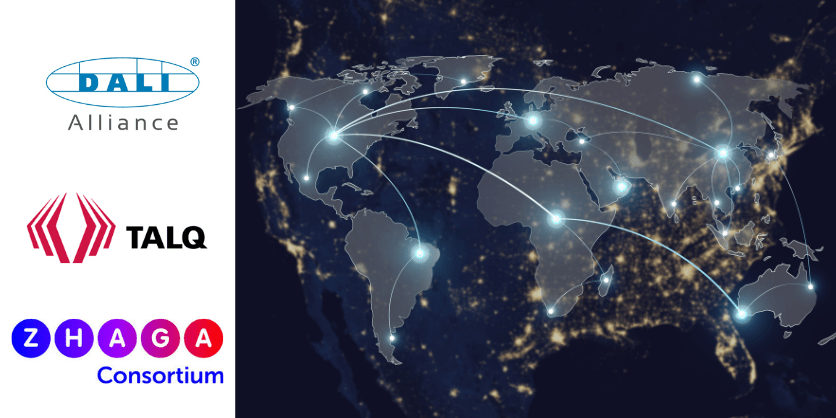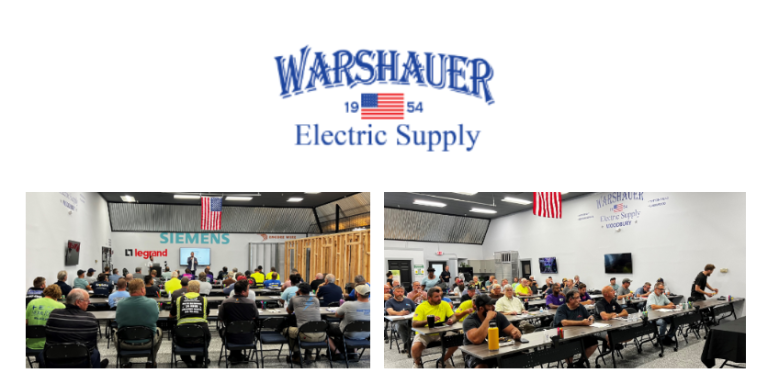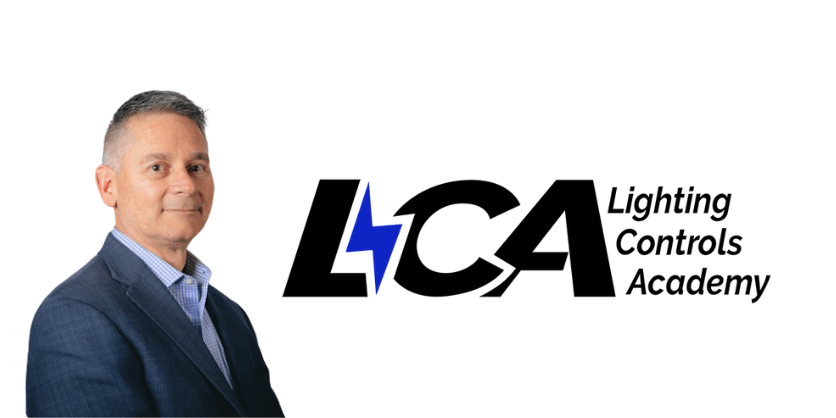DALI, TALQ & Zhaga Agree to Unify Data Streams for Smart Street Lighting Solutions

The smart lighting category has long been vexed by incompatible controls systems, forcing specifiers and designers to either commit to one protocol that could operate in every application needed or skip the whole idea of incorporating a smart system entirely.
It is welcome news then that the DALI Alliance (DALI), the TALQ Consortium (TALQ) and the Zhaga Consortium (Zhaga) – each of which are focused on defining international lighting standards to ease investment decisions for public and private entities – have announced the signing of a liaison agreement to collaborate on unifying data streams for smart street lighting systems. The collaboration aims to provide a better choice of solutions with interoperable components and enhance communication across outdoor lighting systems.
DALI focuses on developing and managing digital lighting control specifications based on the IEC 62386 standard, enabling the widely recognized DALI-2, D4i, and DALI+ certification programs. Its commitment to interoperability and certification ensures that lighting components and systems can seamlessly integrate and communicate.
TALQ has developed and introduced a globally accepted standard for outdoor lighting systems using a standardized interface protocol for heterogenous outdoor device networks. The standard has also more recently been widened to include other smart city applications, like waste management, smart traffic, parking and environmental sensing. The TALQ Smart City Protocol enables consistent data to be used within smart city device networks and with the central management systems of cities and communities.
And Zhaga, which is well-known for its work in creating interface specifications for LED light engines and sensor and communication modules, ensures compatibility across different manufacturers. By enabling interoperable LED components and their certification, Zhaga has helped to foster innovation and flexibility within the LED lighting industry.
The collaboration between these three organizations aims to streamline the exchange of data further, offering a unified approach for end-to-end communication and control in smart street lighting applications. The joint work will include a shared approach to achieving a unified data stream solution and exchanging visions on the requirements and architecture needed for such systems. This liaison will enable the respective specifications of DALI, TALQ, and Zhaga to reflect the data and control requirements of outdoor lighting control systems.
“The D4i certification program plays a crucial role in enabling the seamless integration of streetlights into smart city applications, enabling interoperability and sustainability, while gathering critical data for asset management, diagnostics, and energy monitoring,” says Paul Drosihn, General Manager of the DALI Alliance. “By working closely with Zhaga and TALQ, we’re fostering a future-proof ecosystem that enhances supply chain longevity, security, and the right to repair – building resilient infrastructure that supports smart cities for the long term.”
“For us, it is a logical step to work together with DALI and Zhaga. Not only do we share the same goals, but the composition of the member companies also has a large overlap. The better the standards in the street lighting environment become, the more sustainable and future-proof the investment decisions of cities and operators will be,” explains Simon Dunkley, Secretary General of the TALQ Consortium.
“We are thrilled to take this step forward together with DALI and TALQ. By combining our efforts and expertise, we are working towards a more interconnected and efficient future for smart lighting. This partnership ensures that we are all moving in the same direction, uniting our ambitions and promoting real-world interoperability,” said Heinrich Thye, Secretary General of Zhaga.
This liaison signals a significant move towards aligning global standards in smart outdoor lighting. By creating interoperable solutions, the collaboration aims to reduce complexity for manufacturers and cities alike, ultimately fostering a more sustainable and efficient urban future.
Related articles
It’s Not Too Late to Join the First-Ever North American DALI Summit
DALI Alliance Launches Test and Certification Specifications for DALI+








